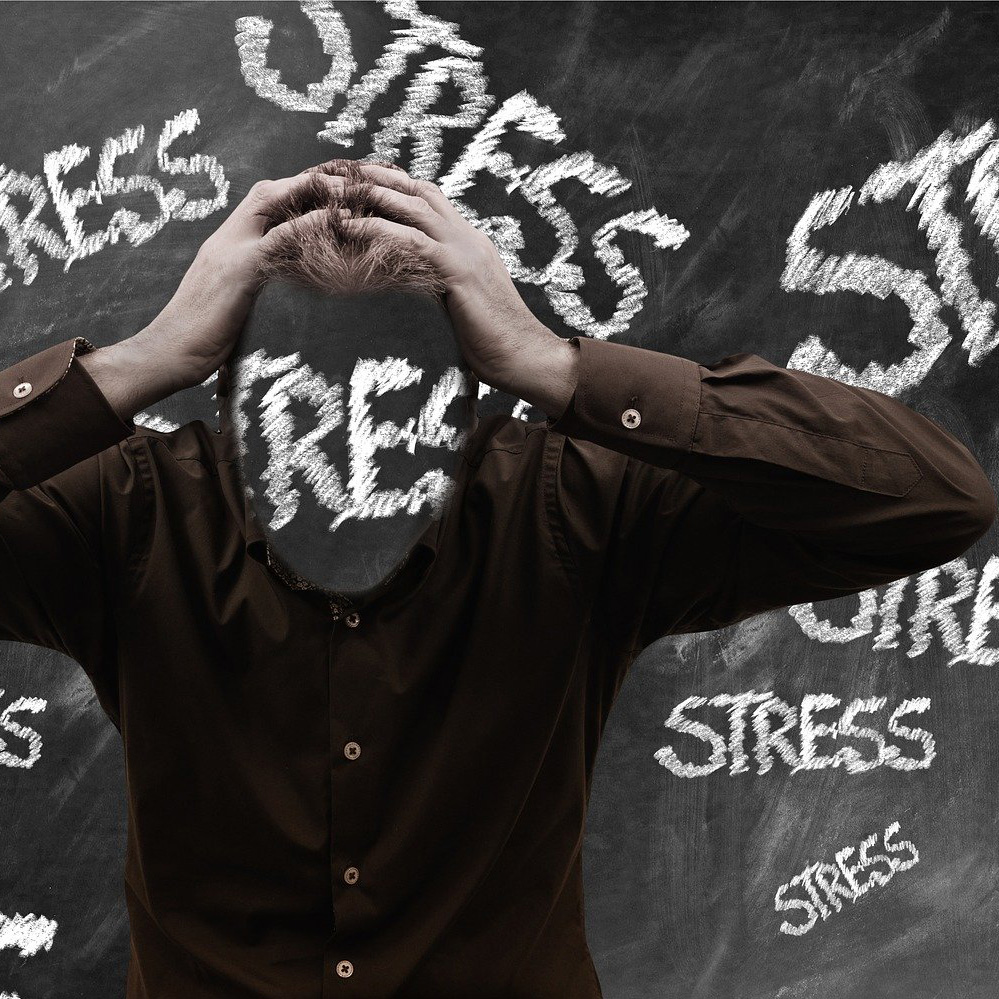
Imagine you are on your way to work. But when you look at your watch, you notice that you might be a bit late for catching the bus: STRESS! You have to run to be able to adapt to the changed situation. Therefore, a lot of things happen in your body: your heart is pumping faster, you’ll feel stronger and your lungs are getting more oxygen from the air. This is a normal stress response – to be able to run very fast. Once you are sitting on the bus, everything will go back to normal and you simply experienced a completely healthy situation.
If the stress response does not stop once you are in the bus, or when the surroundings demand a prolonged stress response, we are talking about the bad kind of stress. If your body does not know how to deal with stress, you can experience too much of the bad kind of stress; your whole body will be affected. How exactly differs per individual, but common signs of stress are:
- muscle pain
- difficulties falling asleep
- low energy
- easily ill
- clenched jaws
- nervous feelings
- worrying a lot
- forgetting (easy) things
- not being able to focus
Remember that everyone experiences stress differently and that everyone’s body reacts differently to stress.
Luckily, we also know how to relieve stress.
The best way is to give your mind some rest. This can be achieved through sport. This does not have to be extreme sports, even a nice walk in the outside air can help. Practicing yoga and meditation is also a good stress reliever, just as is writing what is on your mind. It is very cliché but ‘live, laughs, love’ is another way of dealing with stress: spending time with loved ones, laughing, cuddling, kissing and having sex helps the mind (and body) to relax. Lastly, some food also helps to reduce stress and anxious feelings. The researchers in the Eat2beNICE project are especially interested in the effect food has on mental health, such as stress or post-traumatic stress disorder.
Unfortunately, some people experience really terrible stressors in life: seeing a loved one die, being in combat, being a victim of a crime. After this event, people can feel chronic nervousness, anxiety, experience flashbacks to the event, and perhaps insomnia or uncontrolled thoughts. It is completely normal to feel afraid, and just as with normal stress, it will disappear. However, some people keep on experiencing this fear for at least one month and they will develop post-traumatic stress disorder, or PTSD (it can take years to develop the disorder). PTSD affects daily and social life and patients are often unable to function well in school and/or work. As a result, PTSD is often co-occurring with depression and excessive substance use (e.g. drugs and alcohol). Therefore, it is extremely important to recognize the symptoms of PTSD and seek help as early as possible.



